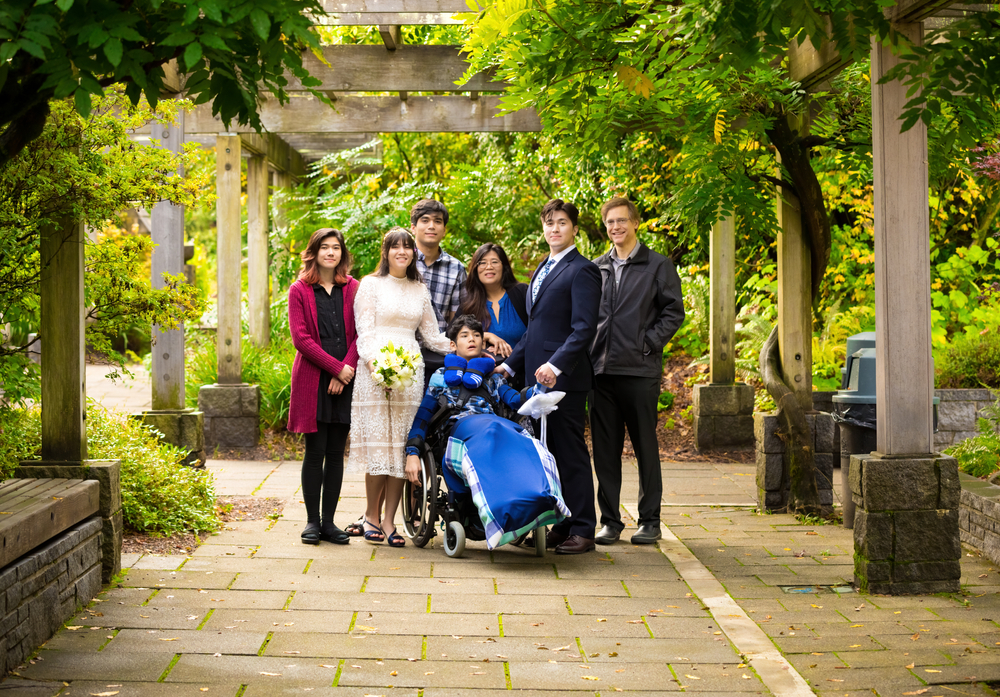Tips for an Inclusive Wedding

You may be focused on your special day when you’re planning your wedding, but a wedding is also about your community of support and love – your guests. It’s estimated that about 25% of the population has a disability that limits major life activities. As you get ready for your celebration, consider how to accommodate your guests who are dealing with disabilities to ensure you have an inclusive wedding.
Assume You’ll Need To Provide Accommodations
Many disabilities are unseen. You may not know all of your guests’ concerns, allergies, mobility issues, vision or hearing difficulties, and more. If you’re having a big wedding, you may be concerned about managing multiple issues for many invitees. The wedding industry is becoming more inclusive, which means that your wedding coordinator may already have solutions.
Let Individuals Communicate Their Needs
Instead of trying to decide what your guests need, let them give you ideas on how you can accommodate them. For example, you can add a line on the RSVP card to let them request special accommodations, whether it’s a dietary need, mobility problem or something else. It can also be helpful to include accessibility information on your wedding website. A guest who is concerned about having an accessible bathroom may not want to make it known that they need those accommodations.
Think About All the Elements of an Inclusive Wedding
The venue may be completely wheelchair accessible, but when you put tables, decorations and people in the room, it might be more difficult for someone who uses a wheelchair to get around well. If your wedding is outside, are the paths accommodating for those who may not be able to walk well? Can invitees access the bathroom easily from the reception area?
Think about transportation options for people with disabilities. The limo you hired may not work out for someone who uses a wheelchair. Are there enough hotel rooms that are accessible? Is there plenty of accessible parking? Can guests be dropped off at the front door?
You may also want to think about how you communicate with guests. Text messages may be easier for someone with hearing problems. Print your program in Braille for a blind guest. Find out if the venue has accommodations for the hearing impaired, such as special audio equipment. If you know some of your guests are neurodivergent, thinking about their needs can allow them to experience your special day.
Remember Companion Assistance
Plus-ones at weddings are often a topic of debate. Guest seating might be limited, but remember that someone who uses a wheelchair or who walks with a cast might need a plus-one for assistance. Remember to include seating for a companion if you’re moving regular seats for a guest who uses a wheelchair. Add space at the reception table to accommodate a service animal. Think about the entire experience.
Think of Your Guests When Planning Your Inclusive Wedding
Compassion goes a long way toward accommodating individuals at a wedding. Your guests with chronic illnesses may not be able to stand up at tables during cocktail hour, for instance. Offering seating can make the evening much more enjoyable and enable them to stay longer. Be inclusive to accommodate invitees, but be cautious about being sensitive to those with disabilities. Don’t seat them all together. Don’t make a spectacle of having a wheelchair dance. Hosts should make sure to take care of guests without making them feel called out.
Being attentive to your guests will make your wedding special. You want to celebrate your new life with your friends and family. Thinking about how they will enjoy the ceremony and reception is a positive way to start. This will incorporate a mindset of inclusivity when planning your wedding.














